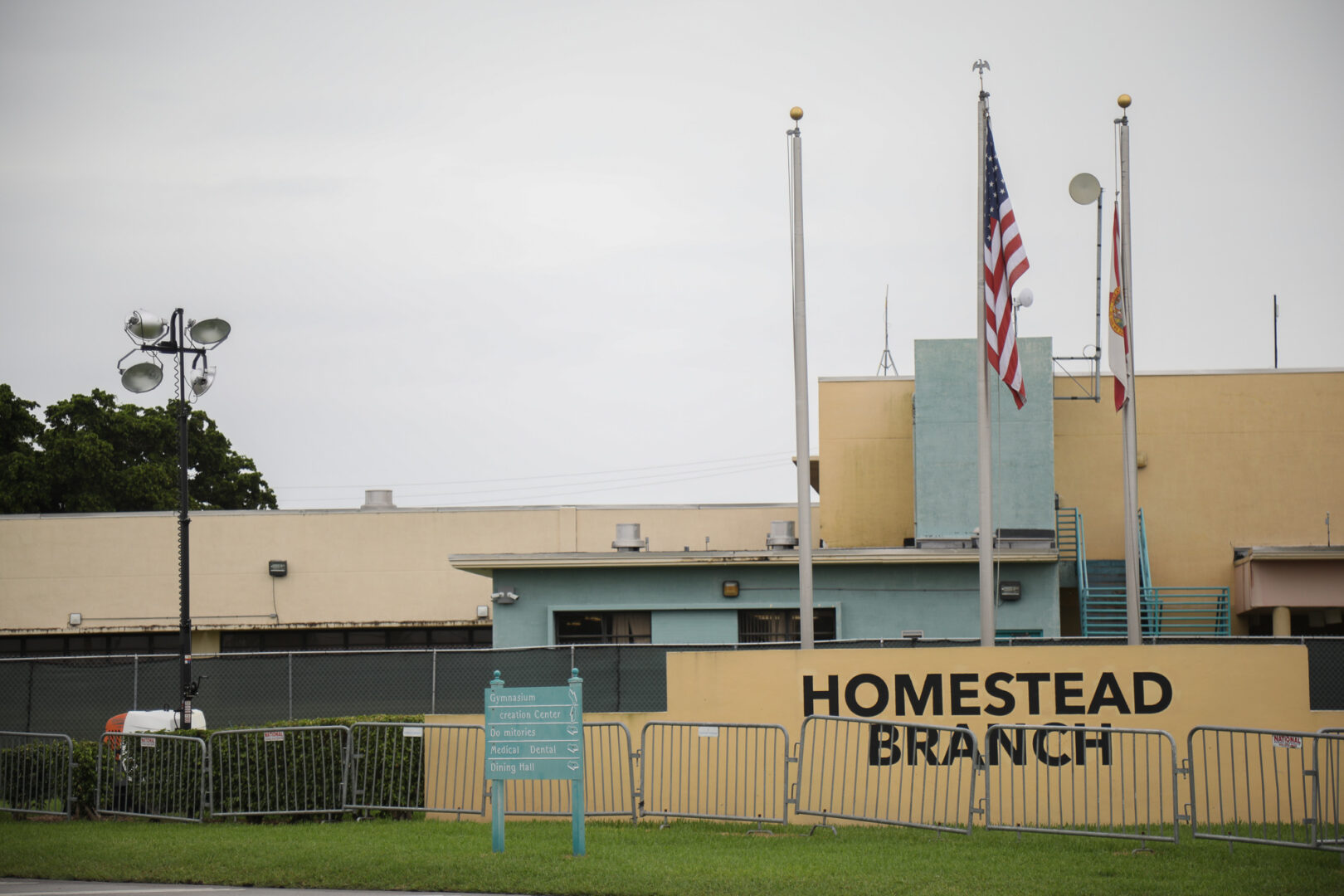The report, “No Home for Children: The Homestead ‘Temporary Emergency’ Facility,” describes the inadequate conditions of the facility, which embodies the disastrous consequences of U.S. policies toward children seeking protection.
“Homestead is not a home for children,” said Denise Bell, researcher for refugee and migrant rights and Amnesty International USA. “Homestead is an industrial line for processing mass numbers of children, instead of focusing on their best interests. The message from this administration is clear: if children come to the US fleeing for their lives, the government will lock them up and make it as difficult as possible to secure their release.”
Amnesty International visited the facility twice, first in April 2019 and then again in July 2019. In early April, over 2,100 children from ages 13 to 17 were housed there. It expanded to nearly 2,500 children at its height of operation and is now reportedly detaining just under 2000 children. While the number of children held at the facility has fluctuated while it has been in operation, no child should ever be held in detention.
Many of the children held at Homestead faced persecution and targeted violence in Central America, where their governments are unwilling or unable to protect them. They made an arduous journey across thousands of miles to the United States, either by themselves or sometimes alongside a family member or trusted adult from which they were later separated.
Despite this, children at Homestead continue to be held in a facility where they are subject to inadequate care. While detained at the facility, children are held in a restrictive setting, where they are required to follow a highly regimented and strict schedule, wear ID badges with barcodes that are scanned when they enter and leave buildings, and request basic services by filling out request forms. Girls must even submit a request form if they need a sanitary pad. While the children receive educational services, classes do not follow the Miami-Dade County public school curriculum. Many of these children speak Indigenous languages and face barriers in accessing services at all.
At one point, children at Homestead spent an average of 89 days there according to the facility director. When Amnesty International visited in April, children at the facility were detained for a reported average of 52 days before children were either released to sponsors or transferred to another facility where their detention continued. In some cases, children have tried to escape the facility.
“Children detained in Homestead are frightened, alone, and far from home. The vast majority have sponsors willing to take them, many of whom are parents and family members,” said Denise Bell, researcher for refugee and migrant rights at Amnesty International USA. “The prolonged and indefinite detention of children was a crisis of the government’s own making. The administration chose to make it as difficult as possible to release these children by putting potential sponsors at risk of deportation due to an unnecessary information-sharing policy. This policy perpetuated family separation by another name and must be rescinded.”
The report calls for the closure of the Homestead facility. Children should never be detained, but if they are, it should be for the shortest possible length of time in the least restrictive setting possible. The continued use of temporary facilities such as Homestead and any new similar facilities should be discontinued.
Amnesty is also calling for investigations into the conditions at the Homestead facility and other government facilities detaining migrant children, as well as increased access for NGOs and members of Congress who wish to see Homestead and other facilities detaining children for themselves.
“The facility in Homestead, Florida must be shut down as quickly as possible and children should be immediately placed in licensed, small-size shelters and released to appropriate sponsors. The senseless detention of children who faced horrific violence and persecution in their home countries, only to be put behind bars in the United States, is a stain on the US human rights record. Children who come to the US should be treated just like any other children and receive our care, not our contempt,” said Bell.
Media contact: Mariya Parodi, [email protected]

